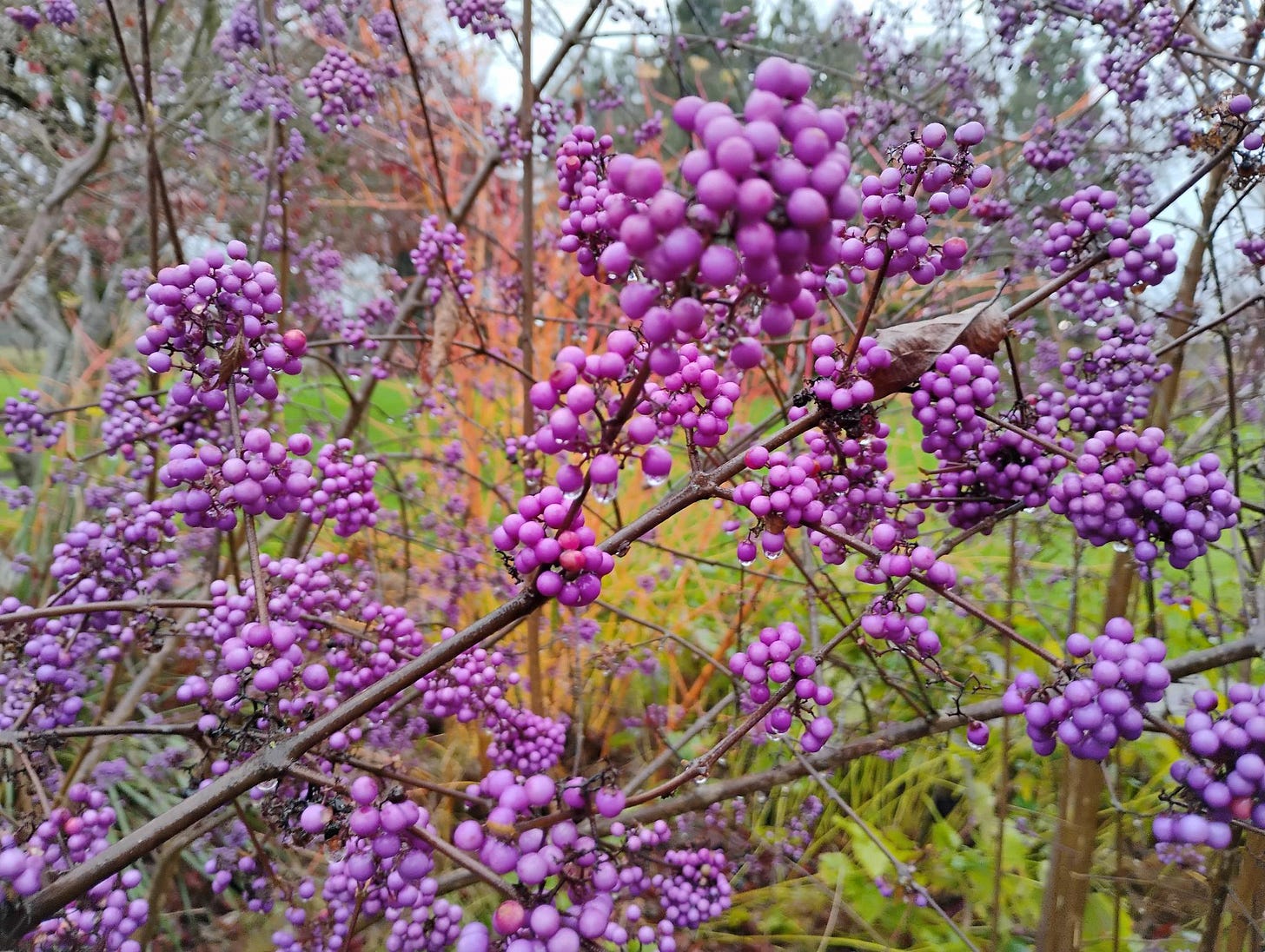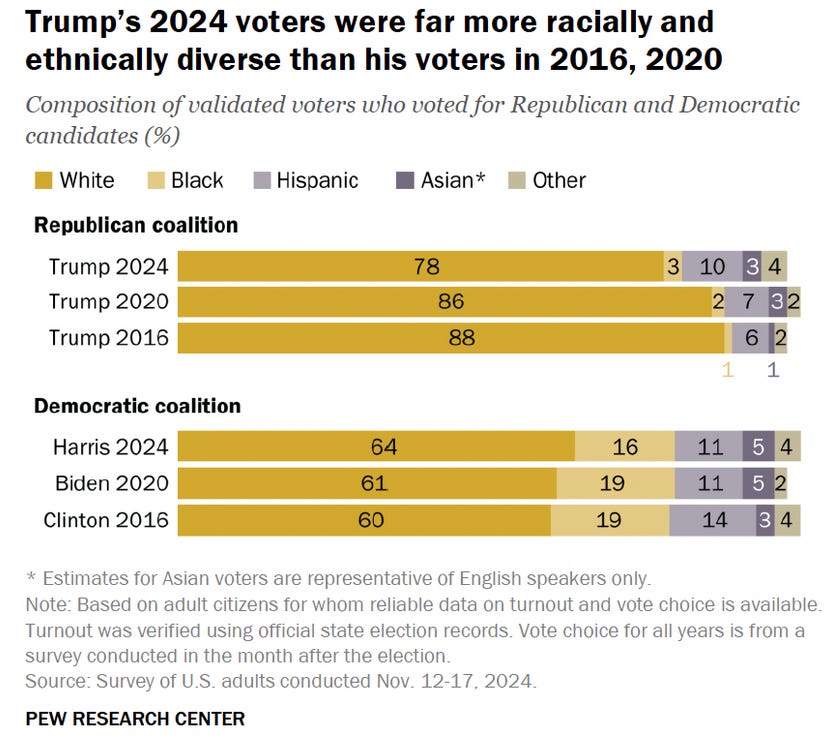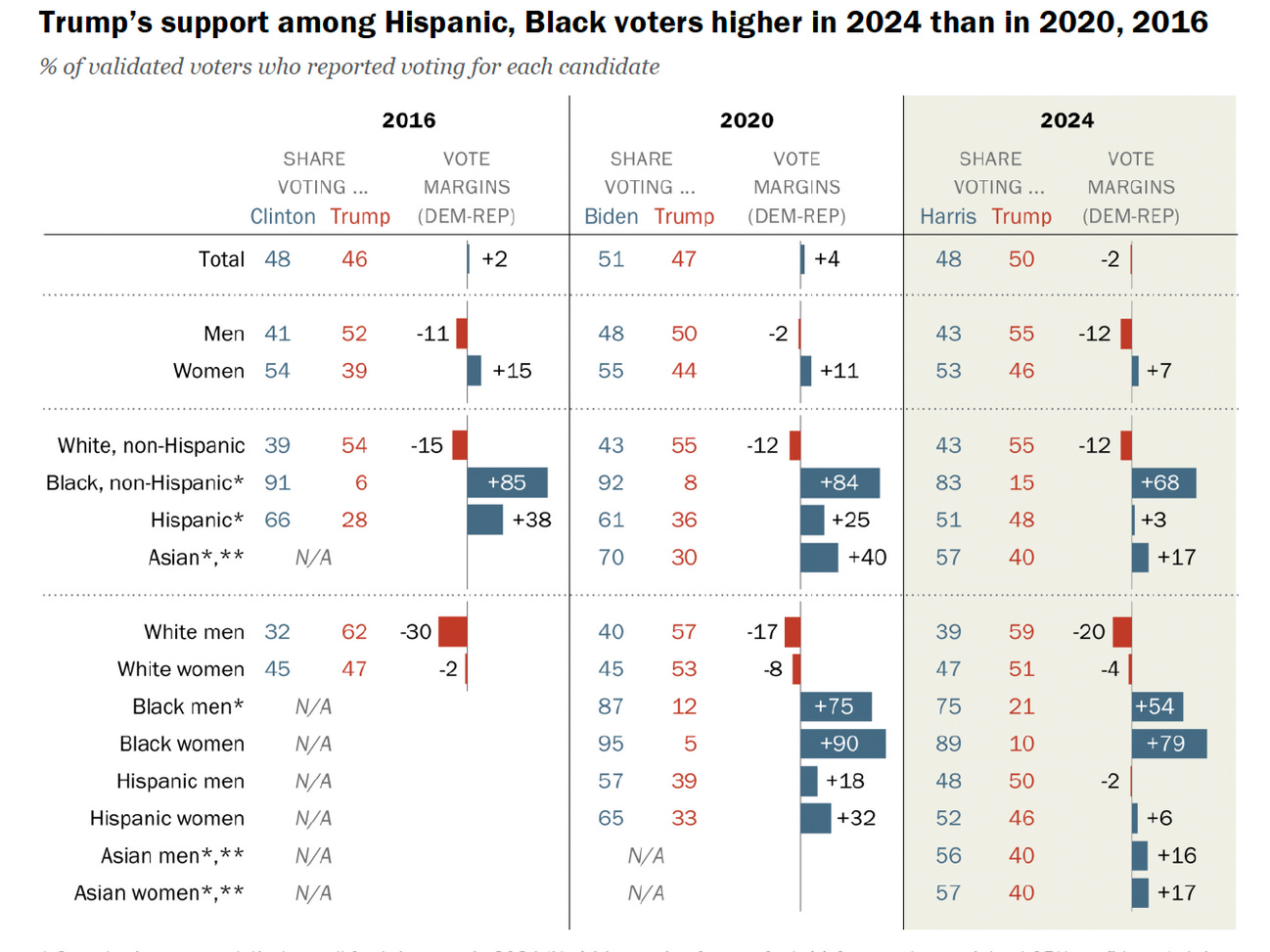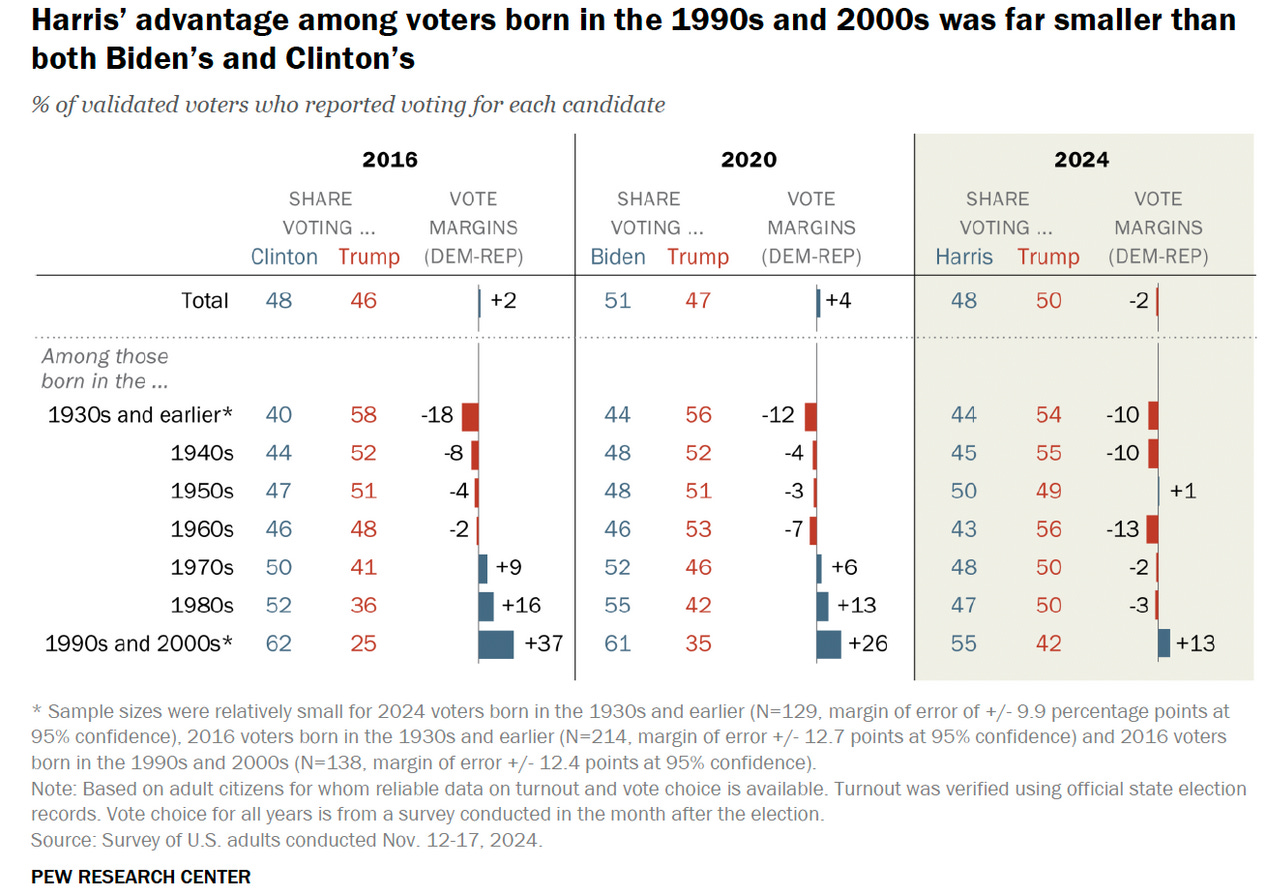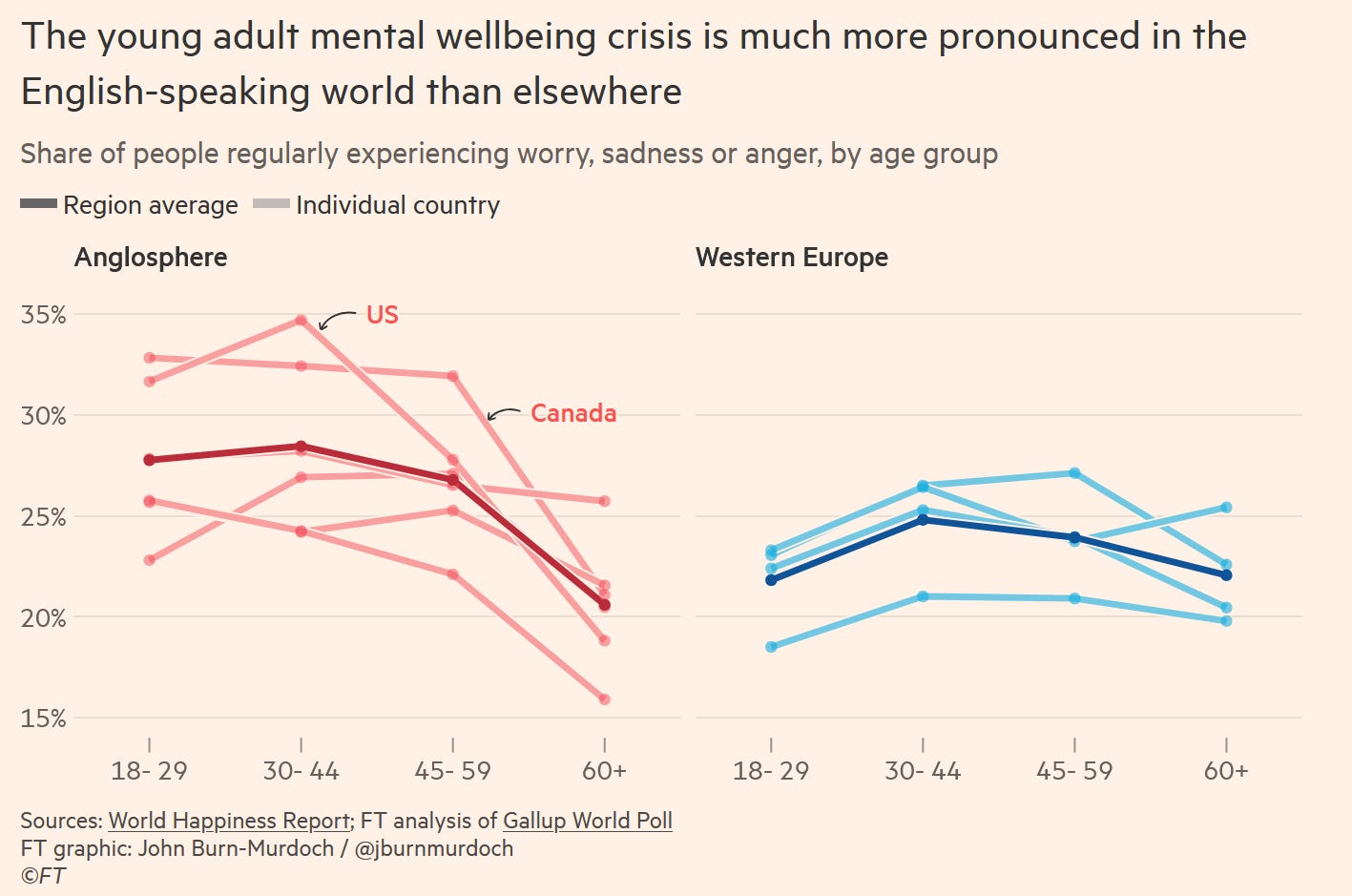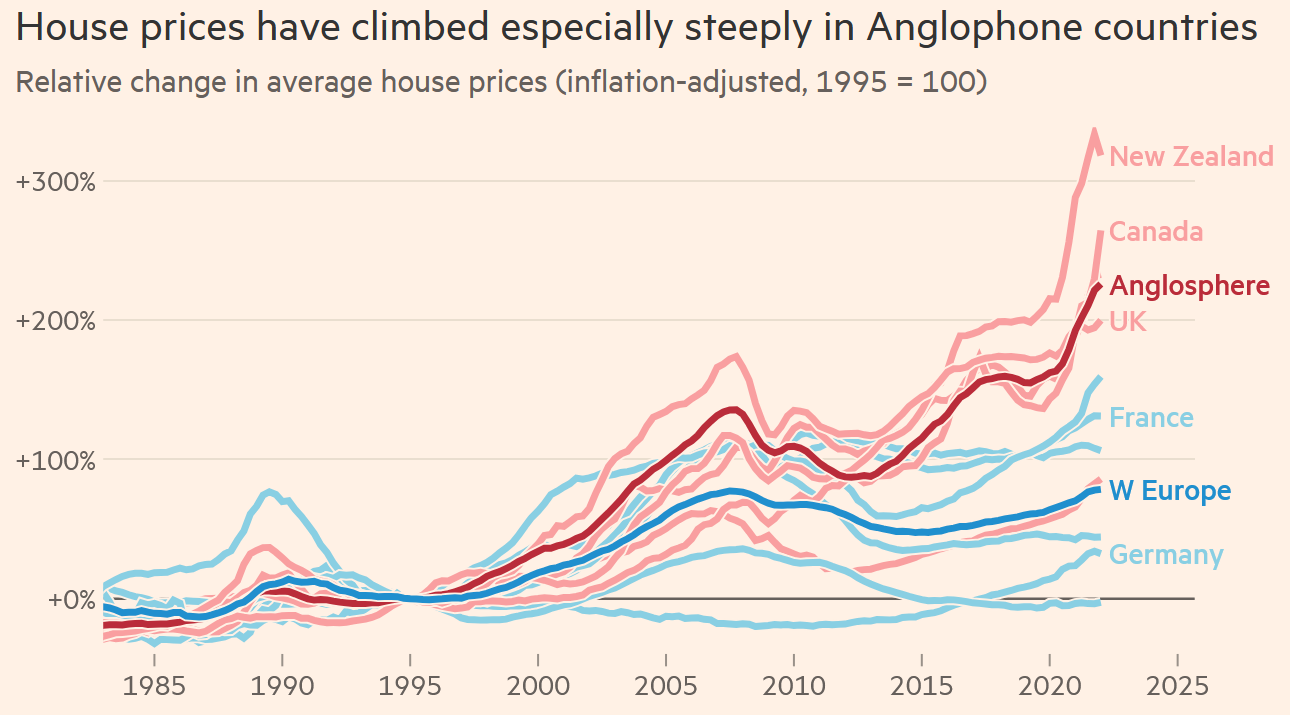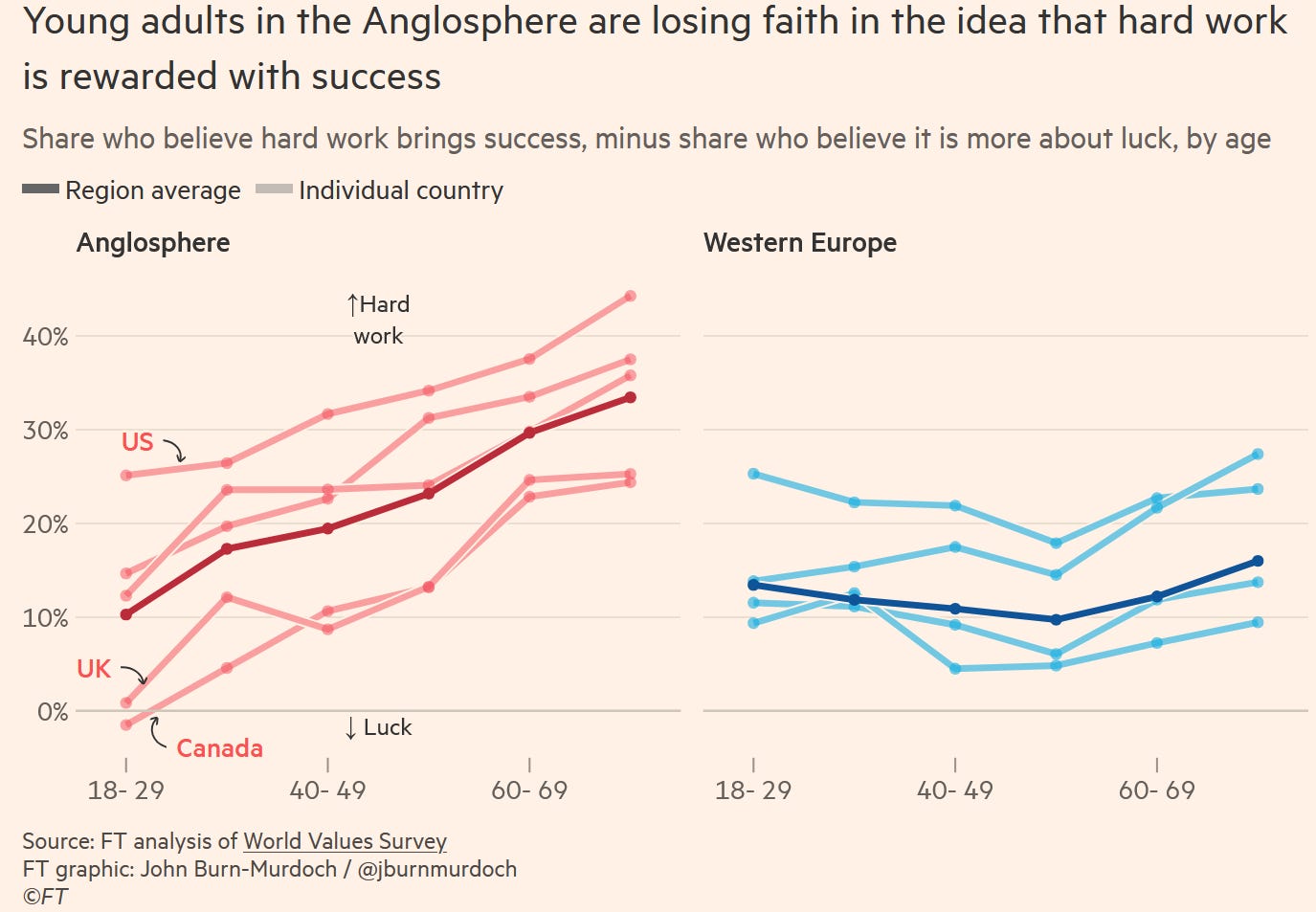Weekly Groundings are published every Friday to highlight the most interesting news, links, and writing I investigated during the past week. They are designed to ground your thinking in the midst of media overload and contribute to Handful of Earth’s broader framework. Please subscribe if you’d like to receive these posts directly in your inbox.
If you’re already subscribed and want to help the publication grow, consider sharing Handful of Earth with a friend.
“Behind Trump’s 2024 Victory, a More Racially and Ethnically Diverse Voter Coalition”
Pew Research publishes a detailed analysis of voting patterns in the 2024 presidential election. The report observes that “Trump won with a voter coalition that was more racially and ethnically diverse than in 2020 or 2016…Among Hispanic voters, Trump battled to near parity in 2024 (51% Harris, 48% Trump) after losing to Joe Biden 61%-36% in 2020. Trump won 15% of Black voters—up from 8% four years earlier. Trump also did better among Asian voters. While a majority of Asian voters (57%) backed Harris, 40% supported Trump. This was a narrower margin than Biden’s in 2020 (70% to 30%).”
Trump also made significant inroads with younger voters: “Most age cohorts of voters saw only small shifts in their candidate preferences between the 2020 and 2024 elections. However, those born in the 1980s and those born in the 1990s or 2000s stand out: Members of both groups became more likely to favor Trump between 2020 and 2024. Defections played a significant role in the changing voting patterns of those born in the 1980s: 8% of 2020 Biden voters in this group switched their votes to Trump in 2024, while just 2% of 2020 Trump voters born in the ’80s switched their votes to Harris. Among those born in the 1990s or 2000s, changes in who turned out to vote accounted for the shift in Trump’s favor.”
“Gen Z’s Flight From Trump”
Despite Trump’s appeal to Gen Z voters during the 2024 election cycle, Zoomers appear to be disappointed with the new administration’s actions. At
, writes that “All the most recent public opinion polling indicates that Trump’s support among Gen Z has collapsed. That could change, but it’s our reality right now. One of the most widely cited figures comes from a CBS/YouGov survey conducted between July 16 and 18, which found that Trump’s approval among those aged 18-29 plummeted from 55 percent in February to 28 percent in July.”Gonzalez writes that “the level of gaslighting from the Trump administration around Epstein has been unlike anything I’ve seen in a decade. The diversions and deceptions are endless and impossible to avoid noticing. Never has Trump seemed so afraid of the unvarnished truth—the thing that only he was supposed to be willing to tell. The trouble is that there is no one with a big platform on the new right who would dare challenge Trump’s lies and therefore provide his movement some credibility. Not Tucker Carlson, not Steve Bannon, not Charlie Kirk, who is currently working on rehabilitating Epstein’s accomplice, Ghislaine Maxwell.”
He concludes: “It’s also unlikely that Gen Z will, in the near term, simply turn toward the arms of the Democratic Party, unless it undergoes a rapid and convincing reform…I tend to agree with Jean M. Twenge, a psychology professor who said that Zoomers as a ‘uniquely pessimistic generation’…In Trump, they saw a savior, a challenger, a truth-teller. Someone whose bold campaign promises pierced the shroud of pessimism that has enveloped their lives. Now, some are seeing that this person was just a mirage, and they are turning away from the illusion and trying to figure things out again. Good for them.”
“Why Are Young Adults in the English-Speaking World So Unhappy?”
The phenomenon of “uniquely pessimistic” Zoomers appears to be “primarily, if not exclusively, an Anglosphere phenomenon,” according to Financial Times data analyst, John Burn-Murdoch. He writes that “The share of young adults regularly experiencing stress and anger has risen sharply over the past 15 years in the US, Canada, UK, Ireland, Australia and New Zealand. But it has been largely stable elsewhere in the west, according to detailed data from the Gallup World Poll used in the report.”
Burn-Murdoch believes that a large part of this phenomenon can be explained by the housing crisis in English-speaking countries: “While dozens of countries are dealing with deteriorating housing affordability, the issue is especially acute in the Anglosphere.”
He continues: “What makes the Anglosphere affordability crunch all the more damaging is that it has happened in societies that have placed especially high value on home ownership, both culturally as the go-to marker of having made it in life, and financially as a means to accumulate wealth in less generous welfare systems than those of continental Europe. English-speaking governments, policymakers and societies more broadly have raised a generation to play the home ownership game. They have then not so much ripped up the rule book as confiscated the board and all the pieces without explanation.
“The consequences of this broken promise are plain to see. The steep age gradient in Anglosphere home ownership rates maps neatly on to each age group’s sense that hard work still brings success. Viewed in this light, the increasingly palpable sense of insecurity, stress and even anger among many Anglo under-forties cannot easily be written off as irrational catastrophising or mental health speak. It reflects a generation’s direct experience of reality.”
“Western Liberalism’s Waning Star”
Also at the Financial Times, liberal commentator Edward Luce argues that “Western liberalism is still on the retreat” despite Trump’s low approval ratings. He identifies liberal covid politics as a major cause: “American liberals were at their worst during the pandemic…One day, it seemed, Dr Anthony Fauci was telling America that masks were not essential. The next, Rochelle Walensky, then head of the Centers for Disease Control was insisting that two-year-olds should be masked all day. Anyone entertaining the theory that the virus might have come from a Wuhan lab was dismissed as Sinophobic or worse. In December 2020, when vaccines became available, the Chicago Teachers Union tweeted, ‘The push to reopen schools is rooted in sexism, racism, and misogyny.’
“Everyone could agree back then that otherwise liberal Sweden was foolish to take the herd immunity route. That Sweden ended up with one of the lowest mortality rates in Europe has not been similarly highlighted. Covid is not ancient history. Any survey probing why so many young voters are turning right that excludes their pandemic experience is wasting time. The road to recovery starts with looking in the mirror. The seminal book, In Covid’s Wake: How Our Politics Failed Us, by two Princeton scholars should be compulsory reading across the spectrum. That it has not been reviewed by most major newspapers is troubling.”
Luce continues: “Liberals said, ‘Follow the science,’ which confused science with faith. Science is a trial and error process that only works with openness to dissent. The same applies to political debate on campus, within newspapers, at think-tanks and society at large. To many younger voters, particularly men, today’s liberal establishment looks more like a conservative one. Educated elites confect orthodoxy on what we should say and do. The resemblance to high Victorianism is more than passing. Victorians regulated manners and etiquette. They also dreaded the mob. Expanding religions look for converts. Waning ones hunt down heretics. In form and content, western liberalism is dangerously close to the latter.”
“Still Standing: Awami Idara, Urdu Literature and Public Amnesia”
At Hammock Magazine, Saranya Subramanian writes on the history of Urdu literature and working class politics in Bombay: “Madanpura, a working class neighbourhood in old Bombay, where Urdu is as ubiquitous as the redevelopment at every corner…The Awami Idara is a community Urdu library that has been a literary Mecca in Mumbai’s Madanpura since 1952…Comrade Ibrahim, who runs the library and is also on the local mosque’s committee, is a busy man who made time to meet me and show me the archive of over ten thousand books the library houses. Once an active space sprawling across two floors, home to Communist Party of India meetings, children’s reading nooks and women’s sewing classes, Awami Idara has been a pillar of the working class neighbourhood’s cultural zeitgeist.”
Subramanian writes that “The space was originally set up in order for workers to have a space to exist freely; the library’s timings allowed it to be open until late in the night, giving the labourers a space to interrogate reality through literature after their grueling shift was done. On uncovering more of the Idara’s history, I learn that it was no coincidence that its formation happened in Madanpura; the library housed secular and historical books in Urdu that were given by the Progressive Writers Association—many of whom were Communist Party of India workers from nearby areas.”
“Love Is Not a Virtue”
In this thought-provoking piece for The Institute of Arts & Ideas, Omari Edwards critiques bell hooks’ [sic] conception of love: “bell hooks believed love could save us. In All About Love, she wrote with prophetic clarity and moral urgency: love is not a fleeting feeling, not a romantic distraction, but a deliberate, ethical commitment. Love, she insisted, must be based on care, respect, knowledge, responsibility, trust, and justice. It must nurture. It must heal. And above all, it must be good. This redefinition of love was thrilling. It pushed back against the chaos of toxic relationships, patriarchal family structures, and exploitative intimacy. It refused to let love be an excuse for abuse. For a generation of readers, particularly young activists and progressives, hooks’ vision offered something solid in a world of emotional dysfunction: the possibility that love, rightly understood, could be both personal salvation and political force.”
Edwards writes that “so much of the current conversation, particularly among the young people turning to hooks to explain the disappointments of their relationships, often via TikTok or Instagram, leaves love even more trapped in definition. Her quotes circulate as moral prescriptions, soundbites of emotional clarity: ‘Love and abuse cannot coexist.’ ‘There can be no love without justice.’ But when love becomes this legible, this codified, something gets lost.”
“And what of those left behind by this new moral demand? Those who can’t, or don’t want to, love in ways that heal or uplift or complete? Those of us who once found comfort in hooks' language may now feel estranged from it, quietly excluded by its insistence that love must always be a source of justice. What are we to do with our failed loves, our strange attachments, our desires that don’t behave?”
Edwards concludes: “Even family love, the one we’re told is most natural, can warp and wound. But we don’t need to redeem it. We need to understand it. Love should not be our salvation. Nor our virtue. Nor our politics. It should be what it is: unpredictable, inconsistent, at times unkind. Not always just. Not always healthy. But real. And worth knowing on its own terms, not on ours. In trying to make love better, we’ve ended up making it smaller. We’ve boxed it in with ethics, pinned it down with politics, turned it into a system of rules and self-help maxims. But love isn’t a virtue. It’s a force. It moves us, wrecks us, binds us, undoes us, not because it’s good, but because it’s powerful. And power is never neat.”
What grounded your thinking this week? Share in the comments.


